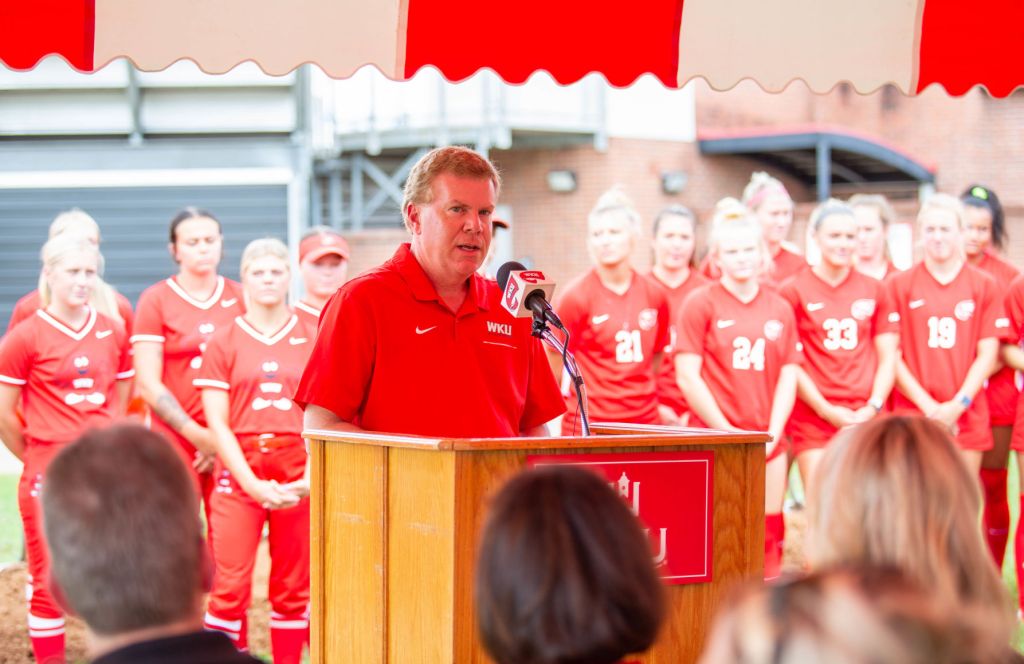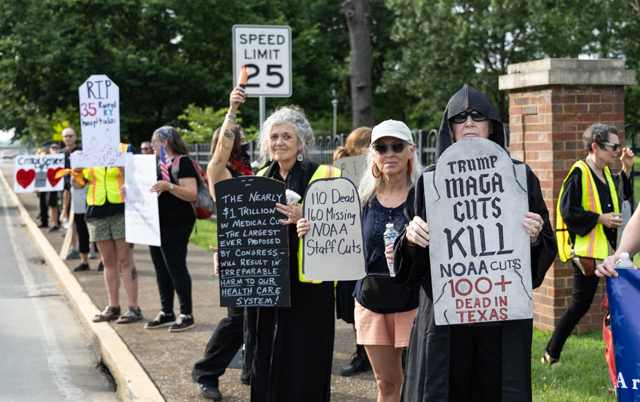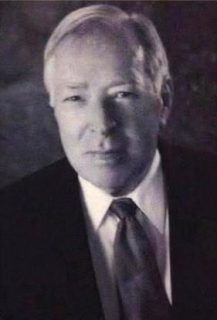WKU AD Stewart backs NIL, hopes for federal guardrails on collectives
Published 12:45 pm Friday, June 16, 2023

- Western Kentucky University director of athletics Todd Stewart speaks at last August’s groundbreaking ceremony for the new WKU Soccer and Softball Complex on Creason Street.
Western Kentucky director of athletics Todd Stewart is an unqualified proponent of name, image and likeness opportunities for college athletes.
Those NIL deals, now the norm across NCAA athletics, provide financial help and opportunities for college students – an option that simply was not permitted by NCAA rules just a few years ago.
Trending
That rigidity on the NCAA’s part was long a source of contention. But now, with NIL opportunities spawning college-independent collectives which pool funds from boosters to benefit student-athletes – usually those currently enrolled at a particular university, but not always, depending on state law – what was once a tightly monitored landscape has become anything but in college athletics.
It’s a situation Stewart and many other college athletics administrators and coaches would like to see change.
“We’ve just gone from longstanding rigid NCAA rules on everything to now it seems like no rules in a two-year period,” Stewart said. “So I think having some guardrails in place, some clarity, just some definition of what you can do and what you can’t do … the name, image and likeness, I’m a big advocate. I think that’s a great thing. I think it’s very fair that athletes can partner with local businesses and make money off of their name and likeness in ways that they weren’t able to do before. I think that’s a good thing.
“What’s out of control are the collectives. Nationwide, the communications that are going on between businesses and recruits and promises made, that was never the intention. That really is pay-for-play. That’s people being offered money to come play at a school before they even set foot on campus.”
Seeking that clarity in the form of federal legislation is what prompted a group of SEC administrators and coaches to visit Washington, D.C., to lobby for some legal help in an effort to rein in potential excesses from some collectives. New NCAA president Charlie Baker has been doing the same, pushing for federal legislation to create uniformity in NIL rules.
Make no mistake, though, the genie is out of the bottle and the NCAA is highly unlikely to operate in the pre-NIL days again. But having federal NIL guidelines in place, along with at least some restrictions on what has become a revolving door of rosters with the liberalized NCAA transfer portal granting any student-athlete a one-time transfer for any reason plus an seemingly unlimited number of waivers to allow additional transfers, could go a long way toward restoring some stability in college sports, Stewart said.
Trending
That framework wouldn’t help just college athletics departments, according to Stewart. Student-athletes could benefit as well from some increased stability.
“I feel like right now where we are with the rules in place – or the lack thereof – with the ability to transfer and with the craziness with some of the NIL and collective stuff that a lot of the kids are making decisions that in the moment are good and make sense for them, but I don’t know if the outcome five years from now is going to be better for them,” Stewart said. “I think all the transferring around is going to make kids less likely to graduate and I just worry that you’re going to have a lot of people that are going to wake up at age 25 and they don’t have a professional career and they never graduated because the transferred two or three times. And they just chased the money and the money’s gone, then what do they have?
“This is the feedback that I just get back from my peers nationwide and coaches – probably 1/3 of the kids that go into the portal truly are better off, they truly land in a better spot. Probably another 1/3, it’s a wash – they’re probably not worse off, but I don’t know that they’re better off. And then I think 1/3 are worse off. They either don’t find a home or where they go is not nearly as good as what they left. That’s the ones I feel bad for, where I think the overall outcome is not going to be a good one.”
WKU has not been immune from the changes brought forth by NIL and the transfer portal, both its benefit and detriment. The school has been active in fostering its own NIL opportunities through the Hilltopper Local Exchange, a free student-athlete business registry that helps student-athletes connect with local businesses interested in partnering up – that registry of businesses has nearly doubled in a year’s time, Stewart said.
Initiatives such as the Hilltopper Local Exchange, combined with the WKU-focused collective Red Towel Trust, has helped the school retain players it might otherwise have lost to greater NIL opportunities elsewhere. Prime examples are WKU starting quarterback Austin Reed and wide receiver Malachi Corley, the nation’s leading passing-game combination last season. Reed briefly entered the transfer portal before ultimately returning to WKU, while Corley could well have also tested the portal had no NIL opportunities been available. Both have found NIL partnerships with local businesses.
“It all helps, it all adds up and this day and age that’s certainly part of the equation,” Stewart said. “I think those guys could have left here and received more elsewhere than they’re receiving here, but I think the ability to receive something here mattered vs. being told sorry, there’s nothing at all that we have here. That would not have been helpful, so the NIL opportunities that they have coupled with the Red Towel Trust has certainly been very helpful in keeping them and obviously helping our other student-athletes as well.”
Stewart advocates for keeping the current NIL opportunities in place, while putting up guardrails on collectives to create a uniform set of rules. As for the transfer portal, Stewart would like to see a return to the old system of transfers having to sit out a year – with one notable change. If a coach leaves a program, Stewart thinks it is then only fair the student-athletes should be able to do the same without penalty.
Much has changed over the past few years within Conference USA and throughout college athletics, but Stewart is confident WKU will continue to successfully navigate that shifting landscape.
“Certainly our league is changing with the members that have left and the new ones that are coming in,” Stewart said. “College athletics is changing dramatically with name, image and likeness and collectives and the transfer portal and all of that. But I feel like we’re positioned well.”{&end}






